How to Install a Brick Tile Floor

by
Adrienne Carrie Hubbard | Crafty Little Gnome
(IC: blogger)
10 Materials
$600
1 Week
Advanced
Installing a brick tile floor in your home is a great way to give your home that old-world, rustic charm. Brick is a timeless material that never goes out of style. In this tutorial you will learn how to install thin brick tile veneer onto a floor such a bathroom or kitchen. Installing a brick tile floor is easier than you might think and the application is very similar to regular tile.
Before you begin you will need to remove the old floor. Our floor consisted of old tile that wasn’t installed very well by the old owner. It was cracked and lifting in many areas, especially around the shower. After all the old tile was removed I had to chip away at the dried mortar that was left on the sub floor. I chipped away at it with a scraper. The floor should be as flat and smooth as possible before you install the new floor.Backer board is a thin layer of concrete that has fiberglass mesh on its sides and is used under the tile to provide a firm and even surface. Due to its composition, it performs well in areas prone to humidity, such as behind shower walls and under bathroom floors. It resists damage from moisture and mold and provides excellent tile adhesion.
I did a 90 degree herringbone pattern. If I had done a traditional herringbone pattern I would have had to cut a million triangles out of the brick pieces at the edge of the pattern. I didn’t want to do that so I rotated the pattern by 90 degrees so that I only had to cut straight edges. It gives the same herringbone look but it’s much easier to install.
Apply a layer of thinset onto the backerboard and then start laying down the brick in your selected pattern.
Cut the bricks as you go and move from left to right, front to back.
Once all the tiles are down let it dry for another 24 hours.
Before you start grouting I recommend sealing the brick. This will help prevent the grout from sticking to the surface of the brick and make it easier to clean up later. Mix the grout according to the directions on the packaging.
Apply it by floating the grouting. Use your trowel to apply the grout on top of the bricks and then use the grout float to smooth the grout over the bricks and into all the joints.
Remove excess grout with the float and then wait 10 minutes for the grout to set before you remove the rest with a wet sponge. Be careful not to remove too much too soon or the grout lines could be compromised.
I prefer to work in small sections at a time. I usually will grout a space that is two feet by two feet before moving on the next area.
Wait 24-48 hours for it to dry.
Apply another coat of sealer and you're floor is done!
Enjoyed the project?
Resources for this project:
See all materials
Any price and availability information displayed on [relevant Amazon Site(s), as applicable] at the time of purchase will apply to the purchase of this product.
Hometalk may collect a small share of sales from the links on this page.More info

Want more details about this and other DIY projects? Check out my blog post!
Published June 26th, 2018 1:41 PM
Comments
Join the conversation
3 of 33 comments
-
 Judith
on Jun 06, 2019
Judith
on Jun 06, 2019
I just LOVE the Herringbone pattern and your Brick floor is gorgeous ! But I have a real bad feeling about it being a bathroom and the steam and moisture that collects there, even though you have sealed the floor. I hope you have YEARS of good wear.
-
 Adrienne Carrie Hubbard | Crafty Little Gnome
on Jun 06, 2019
Adrienne Carrie Hubbard | Crafty Little Gnome
on Jun 06, 2019
It's been a year and its just fine so far.
-
-
-
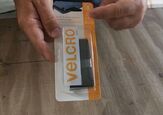
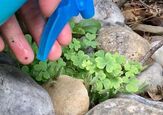

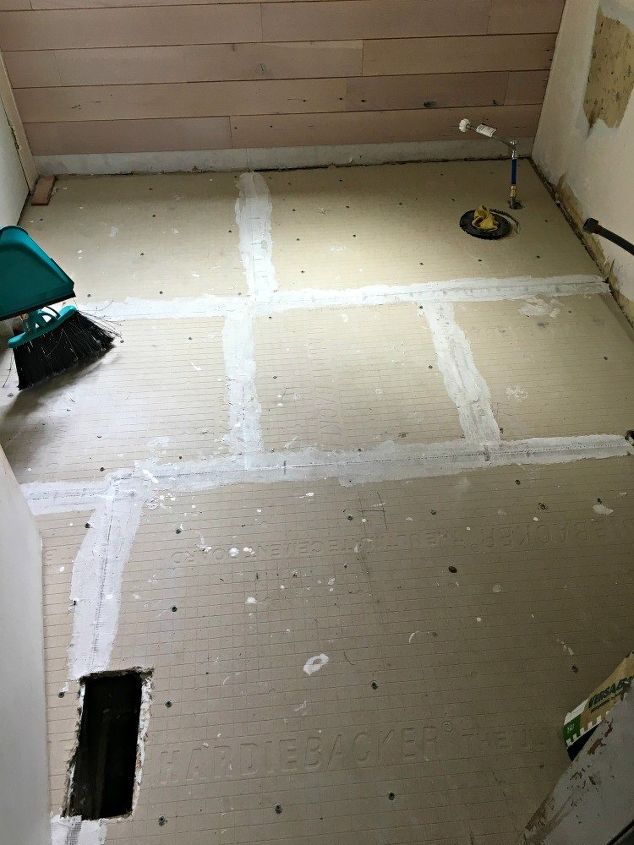














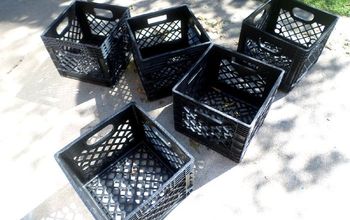
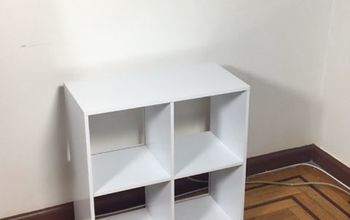



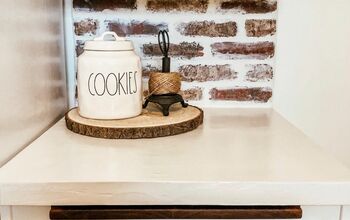
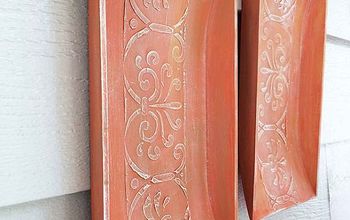
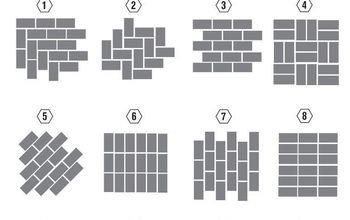
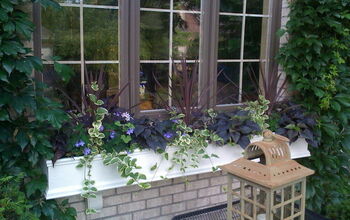
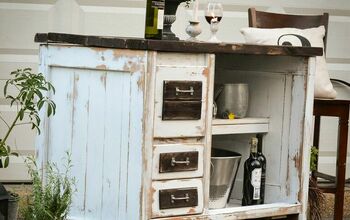
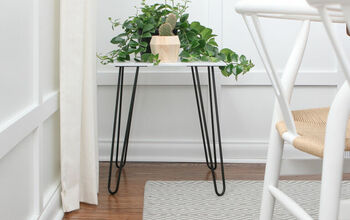
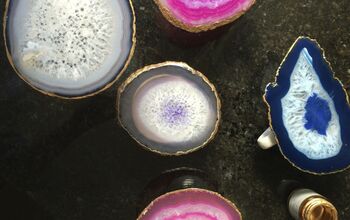
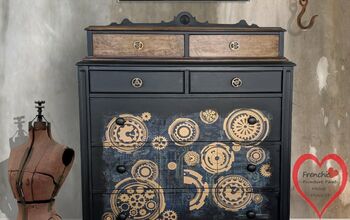

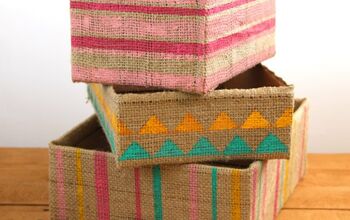
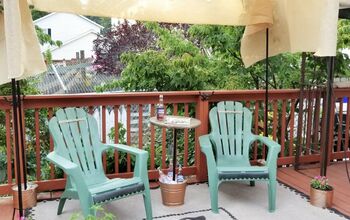

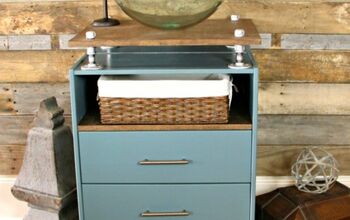
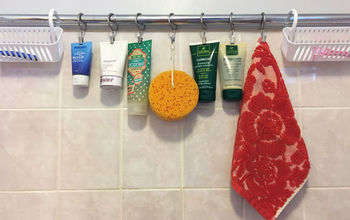
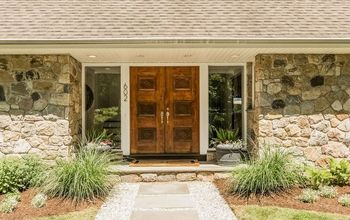
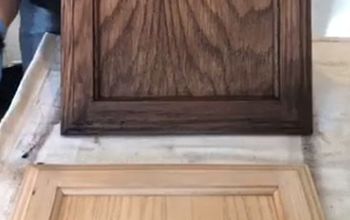
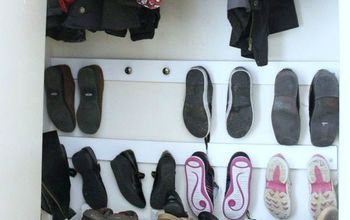
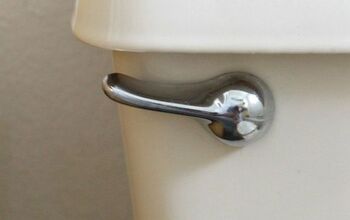
Frequently asked questions
Have a question about this project?
What type of sealer did you use?
I have a similar floor in my downstairs bathroom I was wondering if the grout you used would work for grout repair also? And what type of sealer did you use?
I love it!! I’m curious, in tour experience with your floor so far, do you think this could stand up as a shower floor? It’s so beautiful and looks like it wouldn’t be too slick. Do you think it would be easy enough to clean in a shower and water proof enough to trust with constant water?